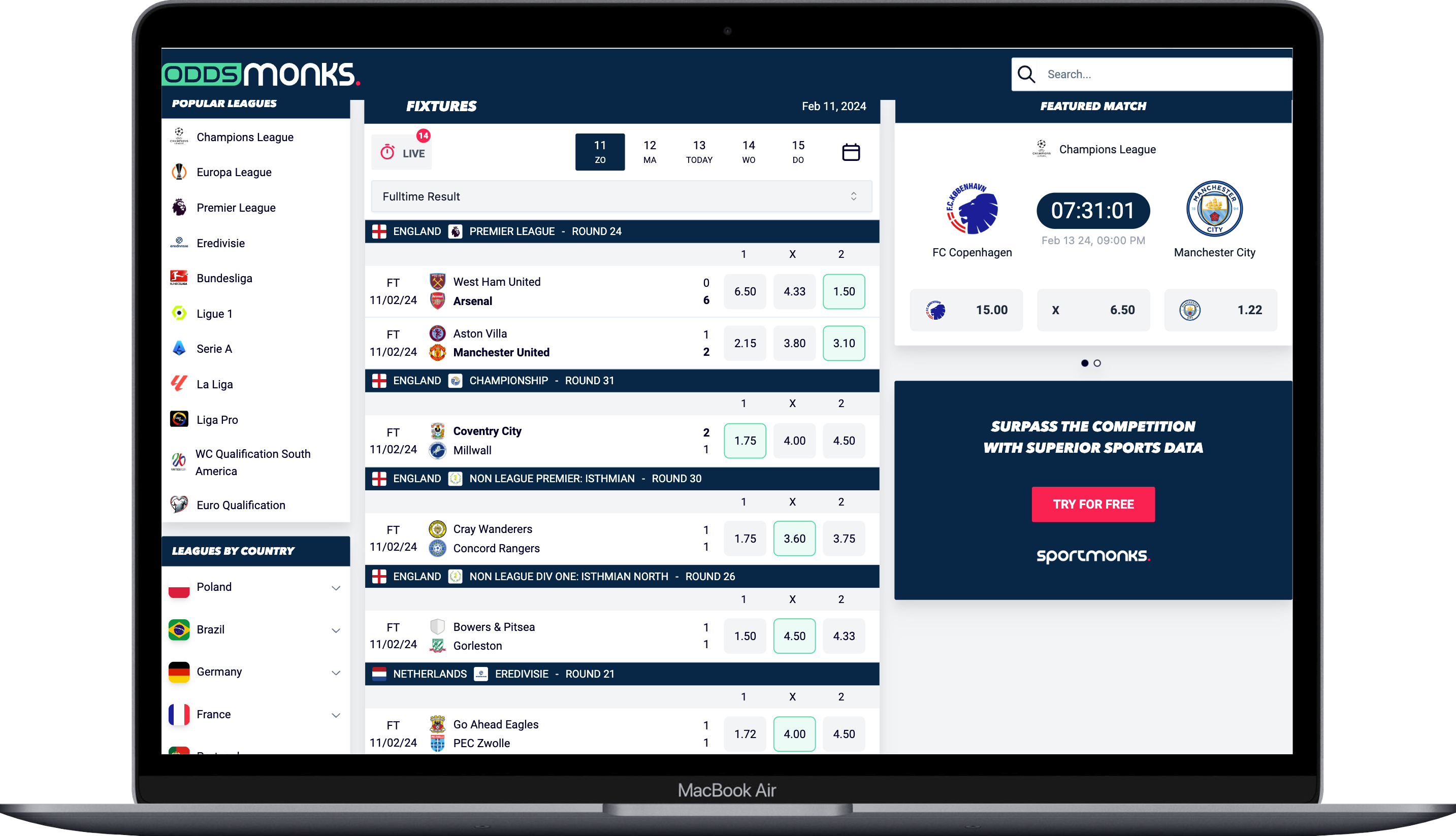
Contents
What is a livescore website?
A football livescore website is a dynamic platform providing real-time updates on football matches worldwide. It offers users instant access to livescores, match statistics, team lineups, betting opportunities and other essential information related to live matches.
These websites typically cover a wide range of football leagues, catering to the diverse interests of football fans globally. Whether it’s the English Premier League, La Liga, Serie A, or international tournaments like the FIFA World Cup, a livescore website ensures that fans stay updated on the latest developments in their favourite matches.
So why should you build a livescore website with Sportmonks’ Football API?
Why build a livescore website with Sportmonks’ Football API?
When considering building a livescore website, leveraging the Sportmonks Football API offers numerous advantages and opportunities that set it apart from competitors. Here’s why building your livescore application with the Sportmonks Football API is a smart choice:
- Engaged users: You will have access to various football data, including livescores & events, match statistics, player information, and more. With reliable and up-to-date data at your fingertips, you can ensure that your livescore website delivers accurate and comprehensive information to your users.
- Easy integration and implementation: Sportmonks’ Football API is designed for developers by developers. It’s user-friendly and easy to integrate into your website or application. With detailed documentation and fast support, you can quickly implement the API into your project, saving time and effort during development.
- Customisation: Choose which data and features are available on your livescore website to meet your audience’s needs and preferences. Whether you want to focus on specific leagues, teams, or match events, the API can be configured to suit your requirements.
- Scalability and performance: Interested in all the leagues available or just the popular football leagues? Not a problem at all. Choose the leagues you’re interested in and expand your offering once ready. Next to that, you won’t have to worry about downtime. The Sportmonks’ infrastructure is designed to handle significant traffic and data requests, ensuring your livescore website remains fast, responsive, and reliable even during peak usage.
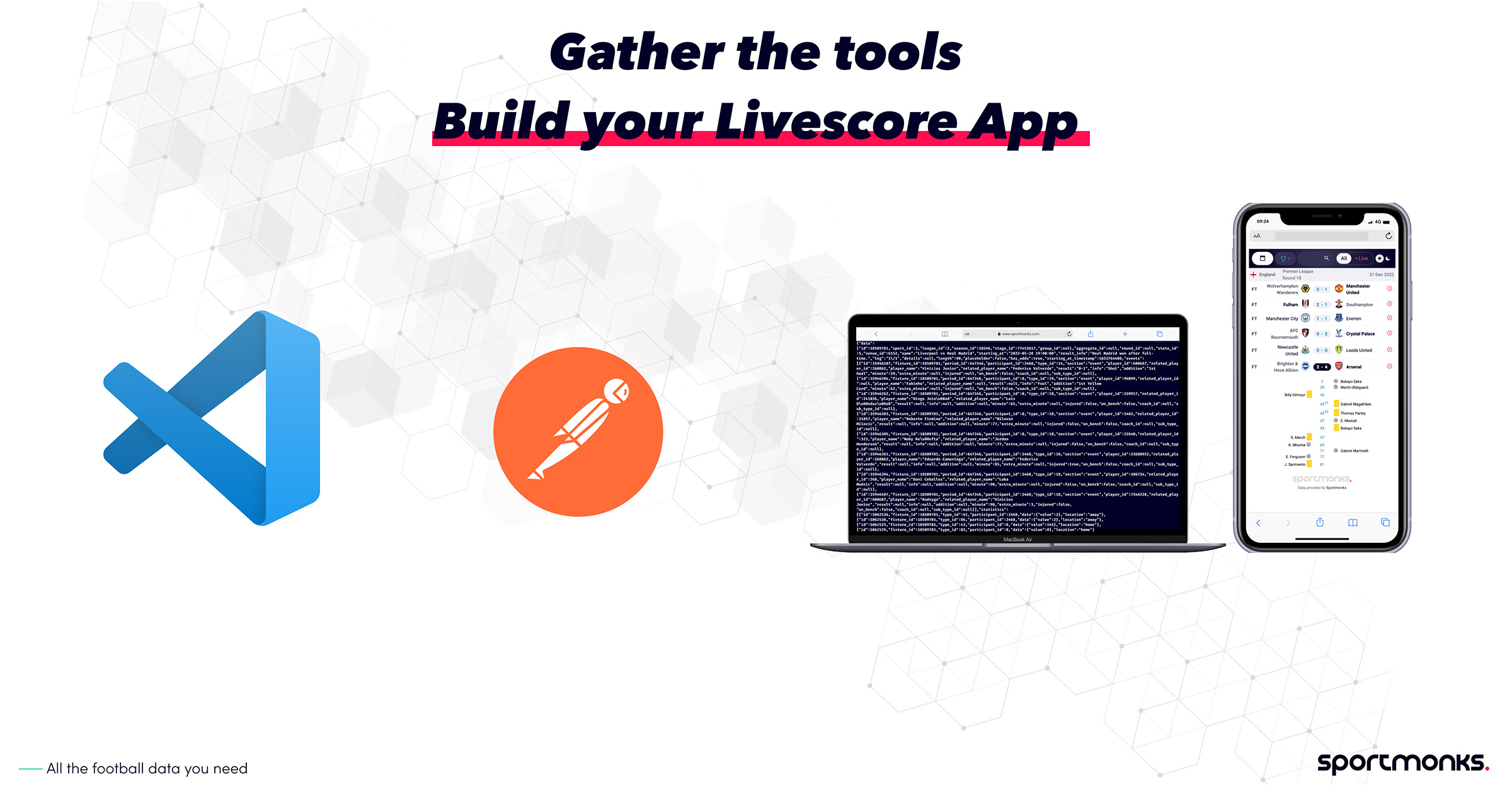
How-to build a livescore website with Sportmonks’ Football API via these steps:
Step 1: Gather the tools
Let’s begin by ensuring you have the necessary tools to build your website. Here’s what you’ll need:
- API Token: Before developing, you must obtain a Sportmonks API token. If you haven’t already, you can create one by visiting MySportmonks.
- Code Editor: We recommend using a reliable code editor to write and edit your website’s code. One of our developers uses Visual Studio Code, but feel free to use any code editor you prefer.
- Postman (Optional): While not essential, installing Postman can be incredibly helpful for testing and debugging API requests. If you’re interested in learning how to use the Sportmonks Football API with Postman, read our How-to use Sportmonks Football API with Postman guide.
Having these tools ready will set you up for success as you build your livescore website with Sportmonks’ Football API.
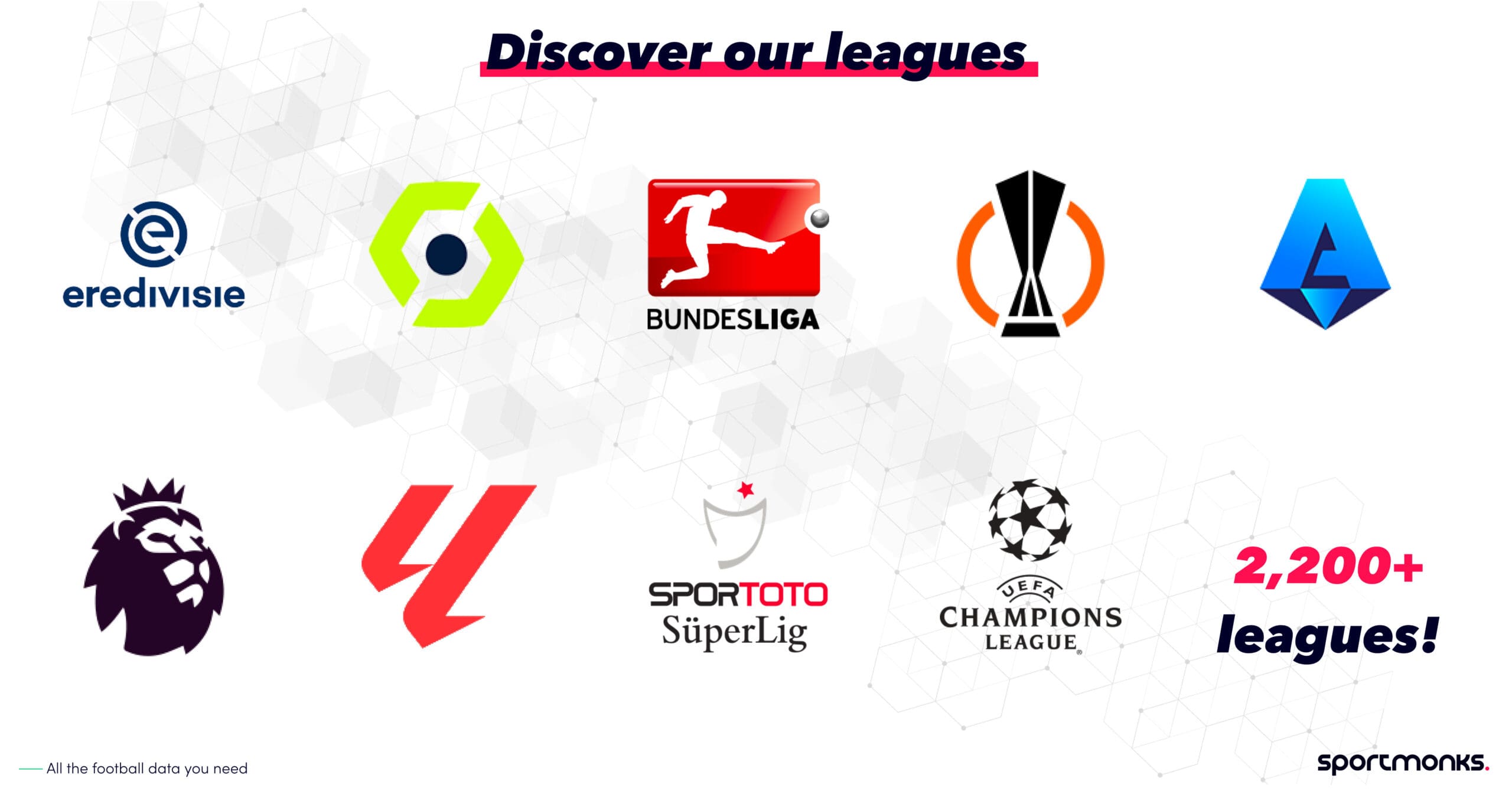
Step 2: Decide which leagues you want to display
Now that we have all our tools, we can plan what we want to show our audience.
Firstly, consider which football leagues capture your interest. Are you aiming to cover a wide range of leagues or focus solely on specific ones, such as the Bundesliga, La Liga or English Premier League?
While making these decisions, ensuring that the leagues you choose align with your subscription plan is crucial. You can refer to our coverage page to determine which leagues your current plan includes. Additionally, you can utilise our “All Leagues” endpoint to retrieve a comprehensive list of leagues available within your subscription.
A vital point to note: if your plan covers no ongoing matches within the leagues, the livescore API will not return any data.

Step 3: Selecting the data to show
Now that you’ve outlined the leagues you wish to feature, the next step is determining the data you want to present to your target audience.
Typically, livescore websites display essential information such as:
- Date and time of the match
- League name, stage and round
- Home and away teams
- Match status (e.g., first half, half-time, full-time etc.)
- The score
- Events like goals, cards, and other match events
- Logos of teams, leagues, and country flags
While this may seem like a substantial amount of data, our Football API is designed to retrieve and deliver this information efficiently, with speed and precision. Furthermore, the API offers excellent flexibility, only returning the specific data you request.
Suppose you need additional match data, such as lineups and match statistics. In that case, we have detailed resources on our “how-to build a match page” to guide you through accessing and incorporating this information into your livescore website.
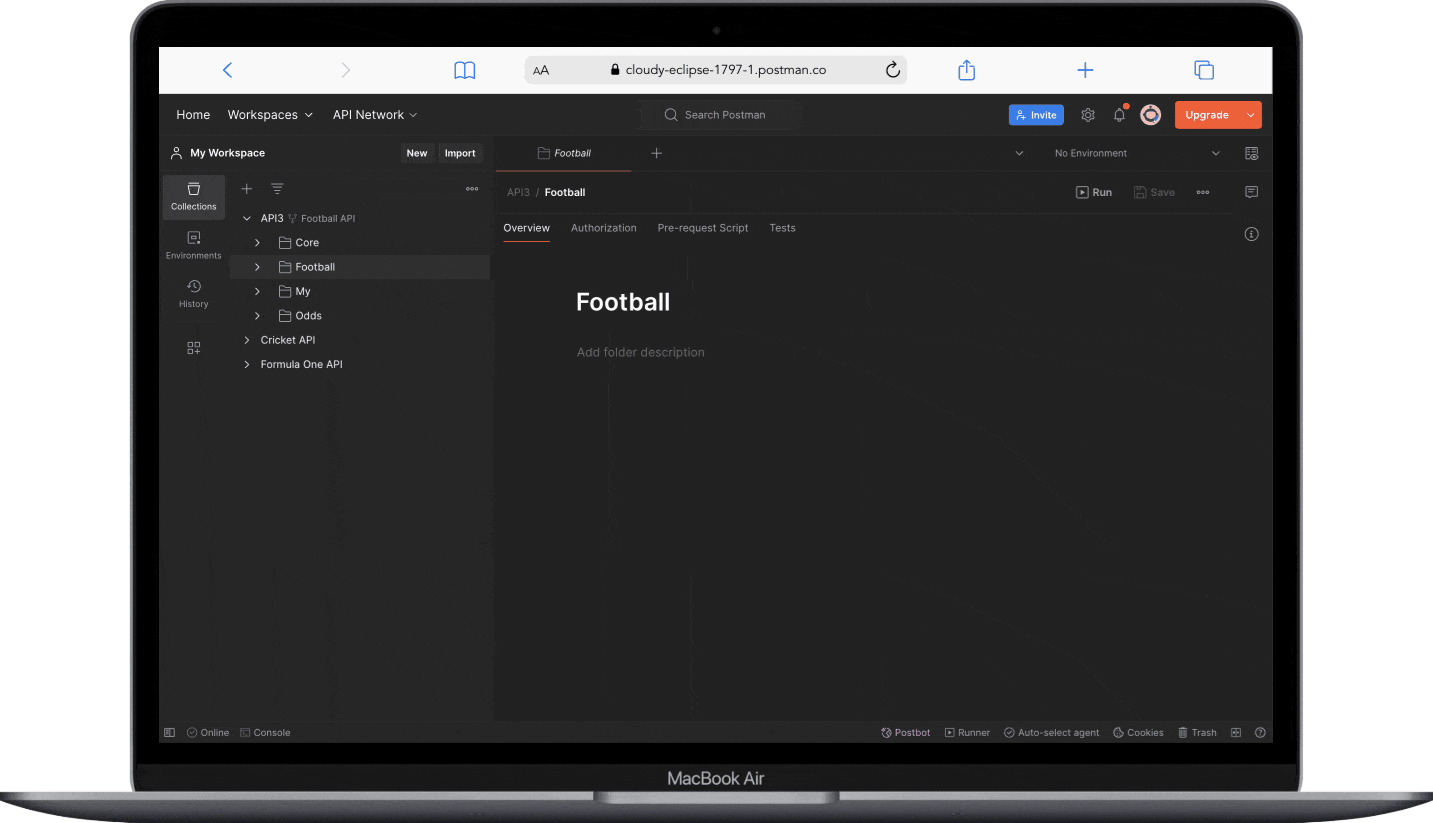
Step 4: Choose the correct endpoint
When utilising our API for retrieving livescores, choosing the appropriate endpoint that aligns with your specific requirements is essential. Here’s a breakdown of the available endpoints:
- GET All Inplay Livescores: returns all the inplay fixtures.
- GET All Livescores: returns the fixtures 15 minutes before the game starts. It will also disappear 15 minutes after the game is finished.
- GET Latest Updated Livescores: returns all livescores that have received updates within 10 seconds.
Interested in more information? Navigate to our documentation pages for more info.
We’ll focus on the GET All Inplay Livescores endpoint for this how-to guide. You can access it using the following URL:
https://api.sportmonks.com/v3/football/livescores/inplay?api_token=YOUR_TOKEN
Tip: Use Postman for quick access to our endpoints.
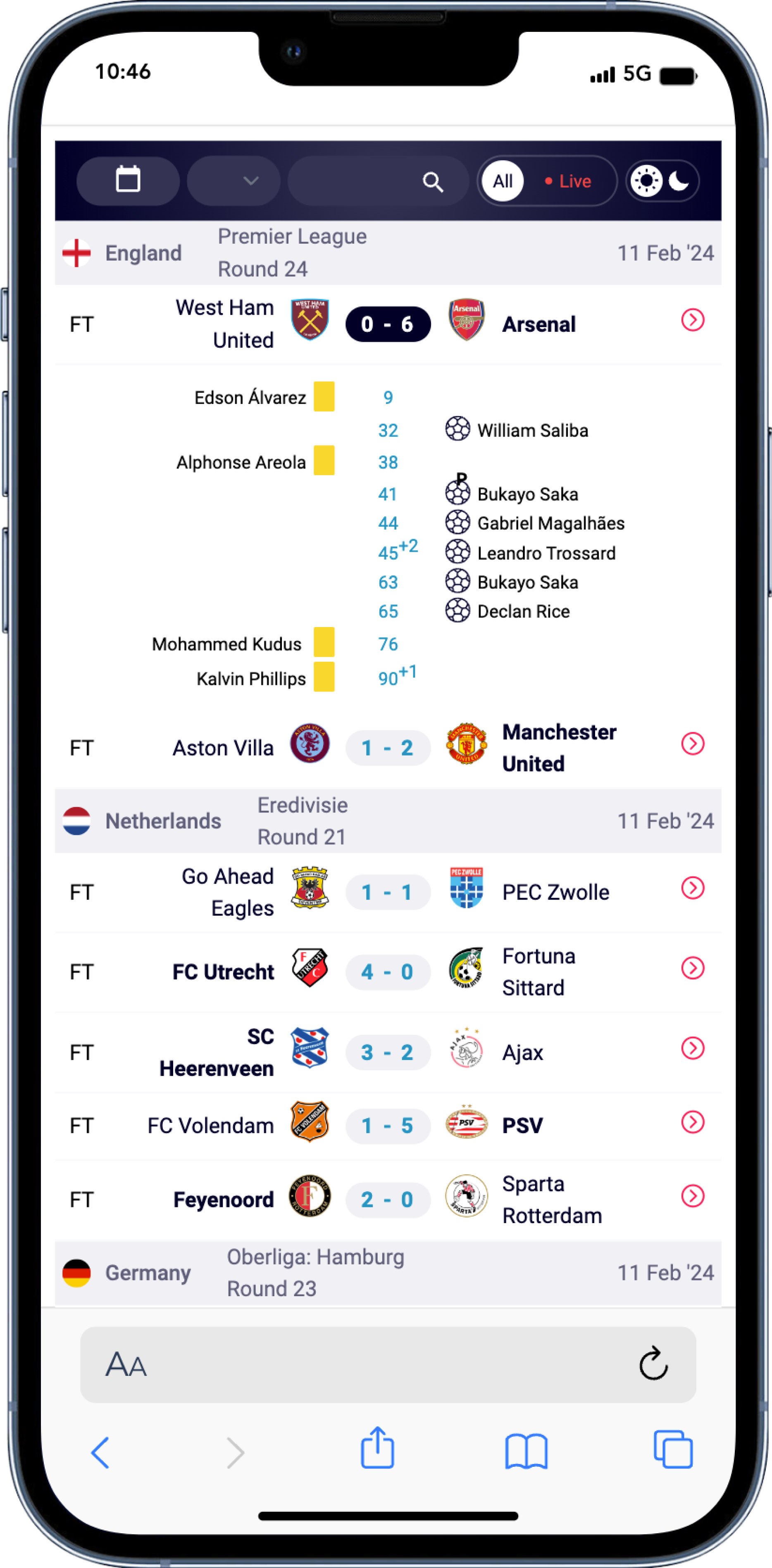
Step 5: Build your API request
With the base URL ready, it’s time to enhance the request with various includes based on your selections in Step 3. This allows for a more comprehensive and tailored response from the API.
For example, a common request may include participants, goals scored, substitutions, and yellow/red cards. For simplicity, these match events can be bundled into one include called “events,” as demonstrated below:
https://api.sportmonks.com/v3/football/livescores/inplay?api_token=YOUR_TOKEN&include=scores;events;participants;periods
This URL retrieves data on scores, events (including goals, substitutions, and cards), participants, and match periods.
For a complete list of possible includes available for livescores, you can refer to the Livescore page.
Ultimately, as the developer of your livescore website, you can add any includes you desire. Whether you choose to include all available data or only specific subsets, the decision is yours to make based on the needs and preferences of your audience. Feel free to customise the request with as many or as few includes as you see fit.
{
"data": {
"id": 18842518,
"sport_id": 1,
"league_id": 8,
"season_id": 21646,
"stage_id": 77464011,
"group_id": null,
"aggregate_id": null,
"round_id": 307165,
"state_id": 5,
"venue_id": 214,
"name": "West Ham United vs Arsenal",
"starting_at": "2024-02-11 14:00:00",
"result_info": "Arsenal won after full-time.",
"leg": "1/1",
"details": null,
"length": 90,
"placeholder": false,
"has_odds": true,
"starting_at_timestamp": 1707660000,
"scores": [
{
"id": 13883194,
"fixture_id": 18842518,
"type_id": 2,
"participant_id": 19,
"score": {
"goals": 6,
"participant": "away"
},
"description": "2ND_HALF"
},
{
"id": 13883195,
"fixture_id": 18842518,
"type_id": 2,
"participant_id": 1,
"score": {
"goals": 0,
"participant": "home"
},
"description": "2ND_HALF"
},
{
"id": 13882903,
"fixture_id": 18842518,
"type_id": 1525,
"participant_id": 19,
"score": {
"goals": 6,
"participant": "away"
},
"description": "CURRENT"
},
{
"id": 13882899,
"fixture_id": 18842518,
"type_id": 1,
"participant_id": 1,
"score": {
"goals": 0,
"participant": "home"
},
"description": "1ST_HALF"
},
{
"id": 13882898,
"fixture_id": 18842518,
"type_id": 1,
"participant_id": 19,
"score": {
"goals": 4,
"participant": "away"
},
"description": "1ST_HALF"
},
{
"id": 13882901,
"fixture_id": 18842518,
"type_id": 1525,
"participant_id": 1,
"score": {
"goals": 0,
"participant": "home"
},
"description": "CURRENT"
}
],
"events": [
{
"id": 96110887,
"fixture_id": 18842518,
"period_id": 5224842,
"participant_id": 19,
"type_id": 14,
"section": "event",
"player_id": 16827155,
"related_player_id": 26823,
"player_name": "Bukayo Saka",
"related_player_name": "Martin Ødegaard",
"result": "0-5",
"info": "Shot",
"addition": "5th Goal",
"minute": 63,
"extra_minute": null,
"injured": null,
"on_bench": false,
"coach_id": null,
"sub_type_id": null
},
{
"id": 96102326,
"fixture_id": 18842518,
"period_id": 5224732,
"participant_id": 1,
"type_id": 19,
"section": "event",
"player_id": 254052,
"related_player_id": null,
"player_name": "Edson Álvarez",
"related_player_name": null,
"result": null,
"info": "Foul",
"addition": null,
"minute": 9,
"extra_minute": null,
"injured": null,
"on_bench": false,
"coach_id": null,
"sub_type_id": 1496
},
//and more
Step 6: Evaluating the Response
Once you’ve made the request and received a response from the API, it’s crucial to evaluate the data to ensure it meets your requirements and expectations. Let’s walk through an example to demonstrate this process:
For instance, let’s analyse a match (fixture ID: 18842518) in the 2023/2024 season of the English Premier League between West Ham United (team ID: 1) and Arsenal (team ID: 19). Below, you’ll find a request URL along with the response containing events for the specified match:
https://api.sportmonks.com/v3/football/livescores/inplay?api_token=YOUR_TOKEN&include=scores;events;participants;periods
In this request, we’ve included periods, scores, events and participants to gather comprehensive data on the match.
Alternatively, you can refer directly to the fixture by ID request to obtain the same output:
https://api.sportmonks.com/v3/football/fixtures/18842518?api_token=YOUR_TOKEN&include=scores;events;participants;periods
Within the response, the events section will display all goals, cards, and substitutions during the match. By carefully reviewing the response data, including events and other vital information, you can ensure that your livescore website provides accurate and timely updates to your audience, enhancing their overall experience.
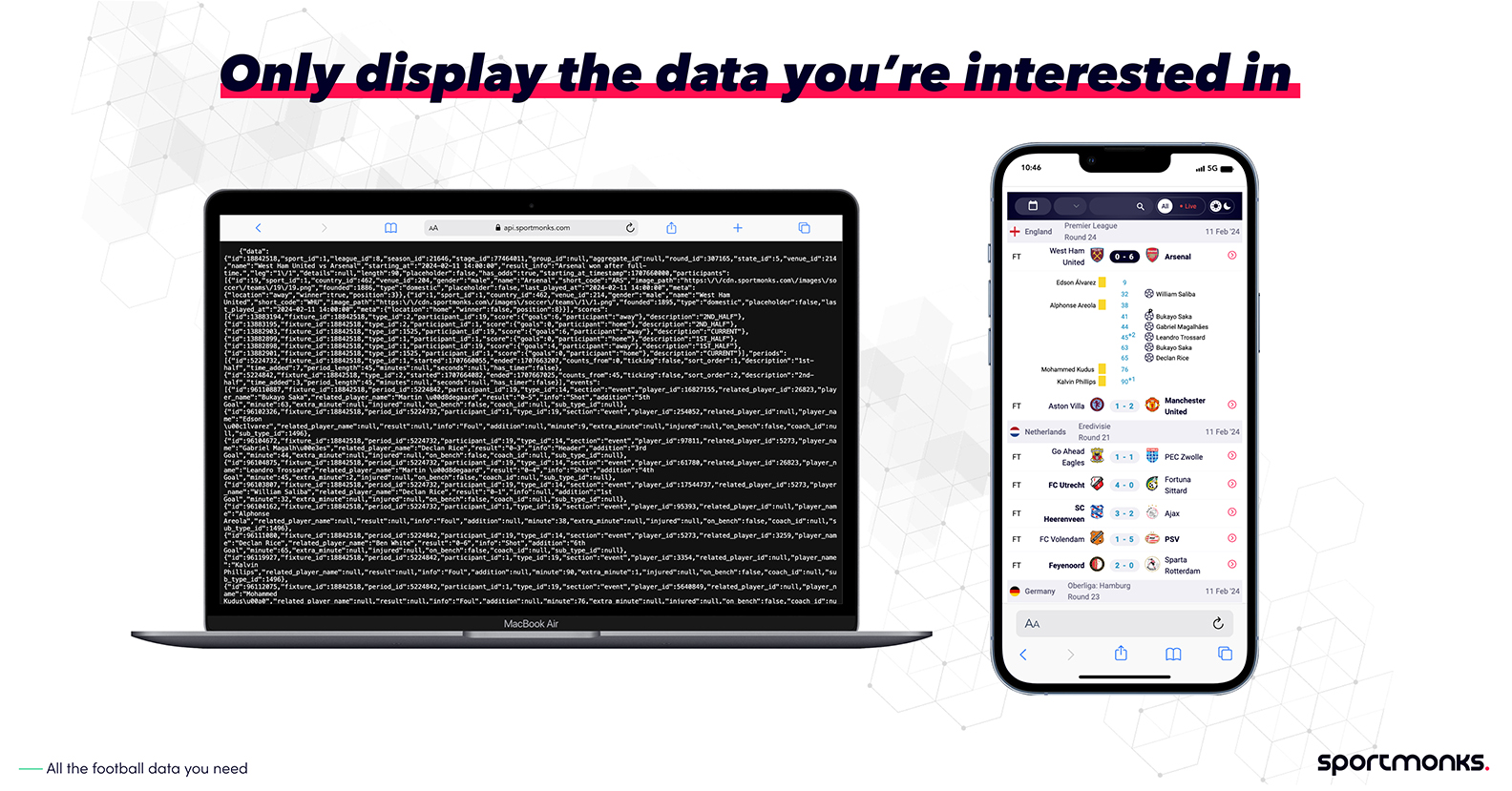
Step 7: Filtering Requests
This step will explore advanced requests, explicitly focusing on filtering data to meet specific criteria. Let’s consider a scenario where you’re only interested in goals scored and cards on your livescore website.
We can implement a filter to exclude all other event data to ensure that our page only displays the goals and cards in the matches.
To achieve this, we’ll apply a filter to our request by adding `&filters=eventTypes:14,19,20,21` to the URL. This filter instructs the API only to return the goals (type ID: 14), yellowcards (type ID: 19), redcards (type ID: 20), yellowredcards (type ID: 21) of the matches on your livescore website.
Here’s an example of how to incorporate the filter into your request:
https://api.sportmonks.com/v3/football/livescores/inplay?api_token=YOUR_TOKEN&include=events.type&filters=eventTypes:14,19,20,21
By utilising filtering capabilities, we can tailor the data retrieved from the API to match the specific needs and preferences of our livescore website. For further details on filtering techniques, refer to our dedicated filter tutorial for additional guidance.
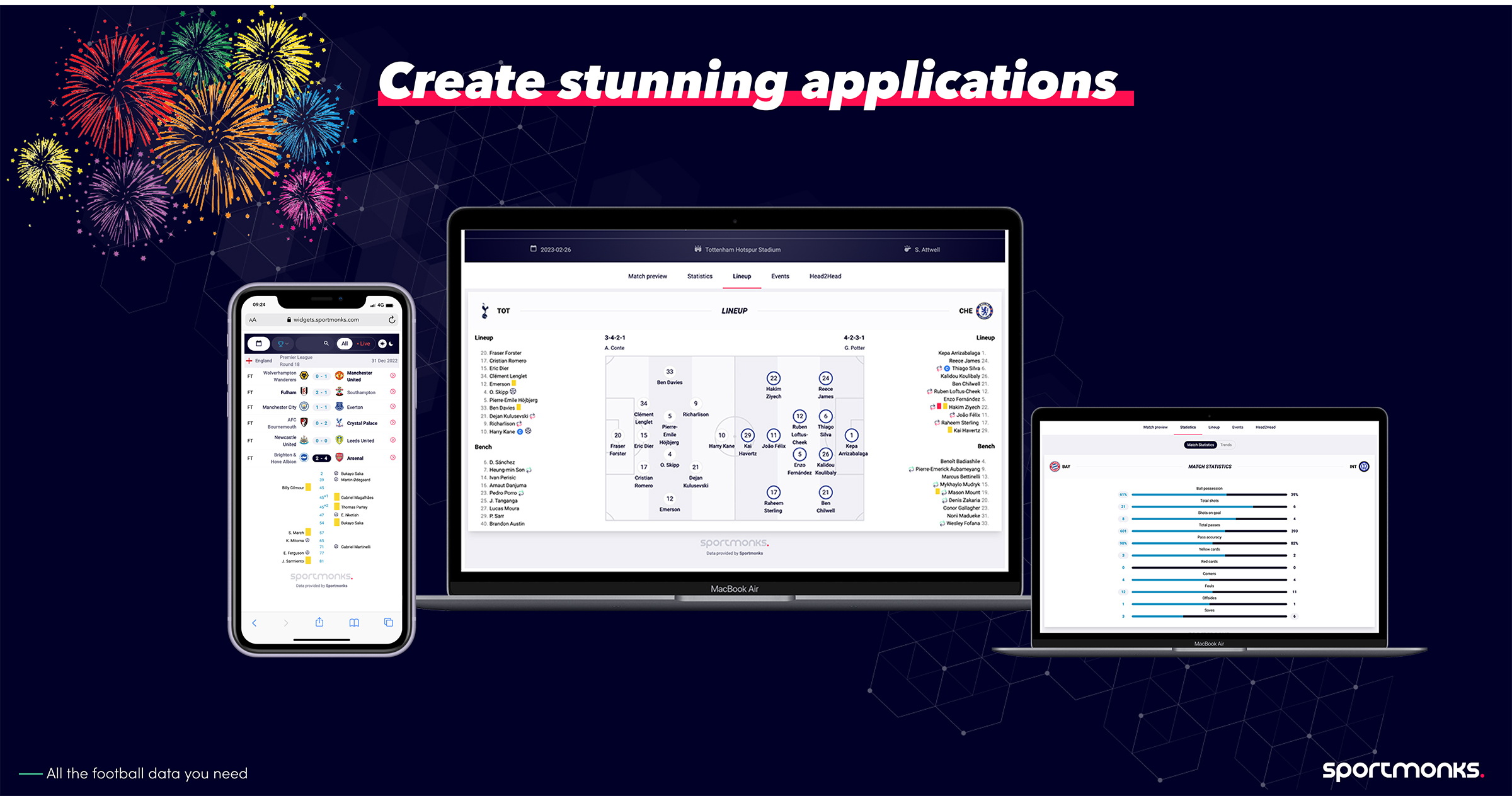
Build a livescore website with Sportmonks’ Football API
Congratulations on completing our comprehensive how-to guide on building your livescore website with Sportmonks’ Football API. Throughout this journey, we’ve covered essential aspects of livescore websites, from their significance to practical steps for implementation using our API.
As you embark on your journey to build your livescore website, remember that the Sportmonks team is here to support you every step. Whether you’re a seasoned developer or just getting started, our comprehensive documentation, responsive support, and reliable API infrastructure are here to empower you to create a top-notch livescore experience for your audience.
So, what are you waiting for? Start building your livescore website today with Sportmonks’ Football API!
Activate your free trialFAQ
- Engaged Users: Provides accurate and comprehensive football data.
- Easy Integration: User-friendly with detailed documentation.
- Customization: Tailor data and features to your audience.
- Scalability: Handles significant traffic and data requests efficiently.
